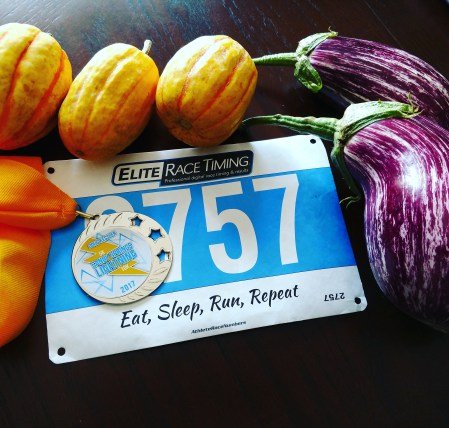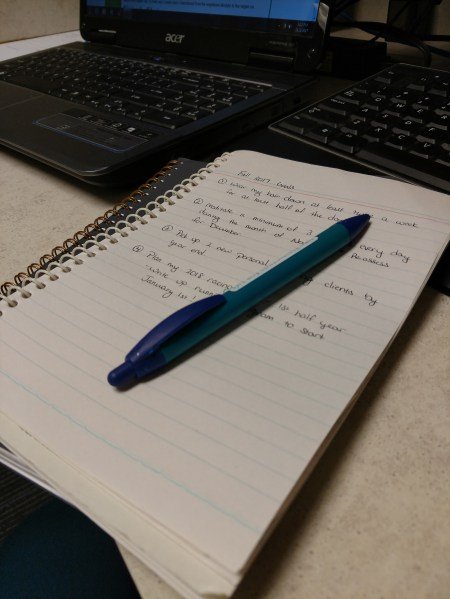The Steem Running Project: Nutrition Basics Week 1

Hey there runners! It’s Katie (@plantstoplanks) back again for your weekly nutrition inspiration. Instead of just jumping right in anywhere, I wanted to start at the beginning. More specifically, let’s start where YOU are right now. Everyone is at a different stage in their nutrition journey. Instead of telling you right off the bat what you should do, I prefer to help you figure out where you are now to use that as a base.
I think of nutrition similar to any type of running plan. While a coach can give basic guidelines to follow, you also have to allow for individual differences in schedule, ability and goals. Not everyone is going to run the same speed or have the same amount of time to train every week. Similarly, not everyone likes the same food, eats at the same time or needs to eat the same quantities. I think there are a lot of individual differences in what a healthy dietary plan can be, so I hope I can help give you the tools to figure out what works for you!
So how do you start to figure out where you are now? Write it down. Yep, pretty simple when you think about it. How many of you write down your training plan or at the very least use an app to log your runs? The same attention to your food and drink consumption can be extremely helpful in learning your actual habits and nutritional intake.

Does it have to be elaborate and difficult? No way! I actually am personally not an advocate of counting every calorie. If you want to use an app on your phone or computer to be able to see the full breakdown of your nutrient intake, by all means use one. I know quite a few people who really love seeing numbers and are that into their training that they play around with small adjustments in macro- or micronutrients. That also works if you are following a specific diet plan where certain intakes are desired. In my experience, however, that does not work for most people as they just do not have the time in their day to analyze or enter in every detailed item they eat or drink.
This may seem like a pain in the neck to do, but it can be very informative for you to really pay attention to what you are eating. You also don’t have to do it forever! We tend to be creatures of habit, so take just a few weeks to get a basic snapshot of your routine. Once you have an idea you can start to look at what you may need to improve upon. It can be helpful to log for a few more weeks after making some changes to see if they are having a positive impact on your running performance, overall energy or weight loss/gain depending on your goals.
I actually prefer a handwritten food log over a digital one. Just a simple notebook works fine. We tend to have a greater connection when we physically write something down, so I think it can make you more present in your food choices. Also some of the food journal applications can get a little overwhelming with all of the data they present. I have learned that looking at the quality of your food versus the calorie content is actually more important for a balanced approach to long-term dietary changes, so it is almost better in some instances to not even be able to see the calories. Do what works best for you, though. Better you pick the option (digital or handwritten) that you will actually stick with than the one you won’t!
Here are the items I like to see in a food journal:
- Basic description of meal/food eaten with a general idea of portion size. Use your hand to approximate portion—handful of nuts or a potato the size of your fist.
- Time of meal.
- If you run or workout that day, also note the time and duration of your workout. It can be telling to see how your meal timing influences performance on your training.
- Energy level/mood for the day.
- Water intake.
- Any other beverage, even if it’s “zero calorie”. I had a personal training client neglect to tell me for almost a year that he drank about 5-6 cans of diet soda every day because he thought it didn’t matter as it had no calories. He happened to read an article about the downsides of artificial sweeteners, stopped drinking the soda, and finally lost the last 10 pounds he wanted to lose (he made no other lifestyle changes to account for the weight loss).
- Vitamins, medications or any other supplements.
- Perhaps this is not a thing to write, but more a tip for recording: try to journal as close to a meal/snack as possible. Sometimes if you wait until the end of the day you will forget some things.
Besides giving you a firm grasp on how you are really eating, the act of journaling oftentimes helps you make better decisions because you are more accountable to yourself. Even if no one else ever looks at it you will most likely think twice about eating the extra piece of pizza or drinking that soda when you know you don’t need it. Because food is so easily attained for a lot of us, we tend to be less mindful of the impact it has on us and we end up eating too much before we realize we are satisfied.
If I can teach you nothing else, I will be content knowing I made you think just a bit more about where your food came from and how it makes you feel. Especially how it makes you feel in relation to your running!
You’ve logged it all down, now what? Check back next week for ideas on how you can use your food journal to make some positive changes.
For more information about @runningproject please see the latest status report: https://steemit.com/runningproject/@runningproject/the-steem-running-project-growing-5th-status-report
Also see the latest update for Week #3 of the 5k Training Program: https://steemit.com/running/@runningproject/the-runningproject-5k-training-program-week-3
And don’t forget to vote for your favorite running article of the week: https://steemit.com/runningproject/@runningproject/vote-your-running-author-of-the-week-the-steem-running-project-wk6-by-runningproject
Posted by @plantstoplanks on behalf of @runningproject

When I was training for marathon I had a logbook of my meals. It was one really important tool since I could control my inputs of calories, proteins, carbohydrates and fats to cope with the spending energy while doing so demanding workouts...
I fully agree with you, a Nutrition plan is very importan for a runner.
Nice! Yes, marathon training is quite grueling and really does require proper fueling to make sure you are taking in enough nutrients to meet the demands on your body. Really any distance does if you are putting in a lot of hard work, but especially the longer distances that can put a lot of drain on your energy stores.
On the other hand, it's easy sometimes to overestimate your caloric needs, too. When I trained for my first half marathon I actually gained a few pounds because I wasn't tracking my meals and I ate with reckless abandon! Darn pancakes did me in. ;)
I usually never take a food log. But I am going to do it when I find a way to carve out more time for my running journey. Thanks for the inspiration @swt3df1
If you've never done it before I would encourage you to try it out at least once for a time. You may be surprised when you write it all down! I've seen just as many people realize they don't eat enough as eat too much, so it's not always what you may expect. I hope you enjoy the journey! Running with a well-fueled body is a wonderful thing!
Oh yes. I’m in the first camp. Sure I binge eat but more often than not I find myself without an appetite.
Your post has been featured in the first issue of the brand new Make It Healthy Project Magazine! Many thanks for sharing such a great post, it's invaluable to the Steemit community (and perhaps even the world!)
Thank you so much for sharing! 🤗